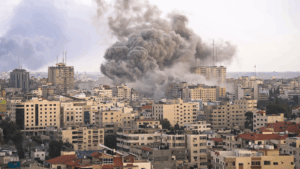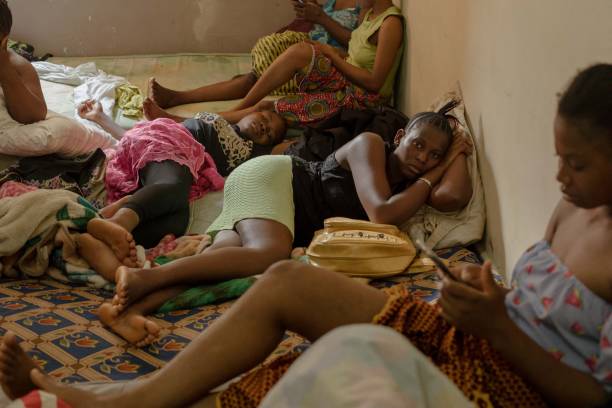An entrenched system of exploitation: the « Kafala »
One of the main reasons why these workers find themselves trapped in a cycle of abuse is the kafala system. Indeed, this system is widespread throughout the region. It ties migrants to their employer, called a « sponsor, ». Therefore, they become responsible for their visa and legal presence in the country. The kafala system gives employers near-total control over their employees, turning them into « property » rather than workers. Moreover, they are excluded from many protections offered by local labor laws. Physical, psychological, and sexual abuse is common. This abuse is often worsened by endless workdays (up to 20 hours a day) and coercive measures, like passport confiscation.
Agreements that fall short
Several East African countries, such as Kenya, Burundi, and Ethiopia, have signed bilateral agreements with Middle Eastern countries like Saudi Arabia, Lebanon, and Qatar. These agreements are supposed to regulate the sending of domestic workers to ensure minimum protection. Yet, in practice, these agreements struggle to put an end to abuses. The numbers speak for themselves: 183 Kenyan domestic workers have died in Saudi Arabia since 2021, often under unclear circumstances. They are suspected to be victims of violence or poor working conditions. Furthermore, Saudi Arabia, along with several other countries in the region, has not ratified the International Convention on the Protection of the Rights of All Migrant Workers and Members of Their Families, leaving these women without effective legal protection.
In 2023, Ethiopia signed an agreement with Lebanon to facilitate the sending of Ethiopian domestic workers to the country. However, it didn’t contain any key clauses such as a minimum wage or mechanisms to combat the kafala system. Therefore, abuses like passport confiscation and appalling working conditions are perpetuated.
The case of Lebanon in wartime
Since September 23, 2024, Lebanon has been struck by a new wave of Israeli bombings. While over a million people have been displaced within the country, the 250,000 migrant domestic workers in Lebanon, often employed in middle-class and elite households, are particularly vulnerable. With the war, their employers, in a state of panic, flee combat zones, abandoning these workers to their fate. In an already difficult situation, these women find themselves homeless, thrown onto the streets. Indeed, shelters prioritize Lebanese citizens. They also can find themselves locked in their employers’ homes to « guard the house » while they flee.
In peacetime, these migrants already live in isolation and exploitation, but the war has exacerbated their vulnerability. Relief services and shelters, overwhelmed by displaced Lebanese, offer them no assistance. Evicted from homes, without resources or protection, they wander the streets, exposed to further exploitation or abuse.
A regional scourge
The fate of foreign domestic workers in Lebanon reflects a broader reality affecting more than 6.6 million women from Asia and Africa who work in households across the Middle East. Systematic exploitation through the kafala system, passport confiscation, the absence of laws protecting migrant workers’ rights, and the indifference of both local and international authorities make this situation a true regional scourge.
A recent example since November 2023 further illustrates this issue. Hundreds of Malawian domestic workers were sent to Israel as part of a program that placed them in farms abandoned by Israeli agricultural workers since the war in Gaza began. Once again, these workers find themselves in a dangerous situation, exploited in the context of an armed conflict.
What can be done ?
It is imperative for the international community to pressure Middle Eastern governments to ratify conventions that guarantee the rights of migrant workers and put an end to the kafala system. Effective and independent monitoring mechanisms are also needed to prevent abuse and ensure that sanctions are applied to employers who mistreat their employees.
The case of migrant domestic workers in the Middle East, particularly in Lebanon under current conditions, is emblematic of the exploitation of vulnerable workers worldwide. Their story, often forgotten or ignored, deserves to be heard, as it highlights the deep inequalities that continue to haunt the contemporary labor world.










